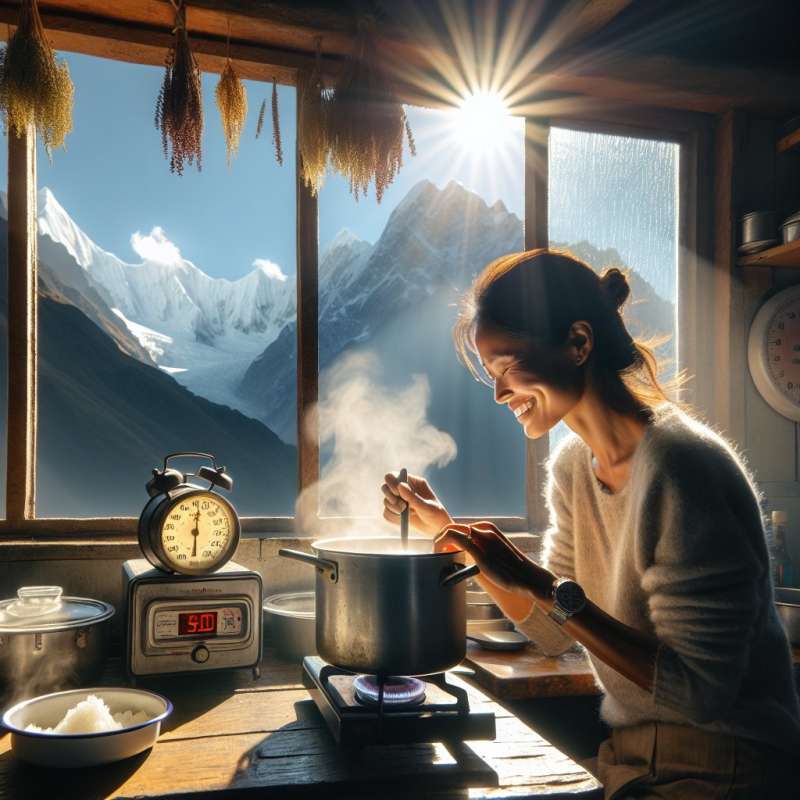
Defining Boiling
Boiling is a rapid vaporization of a liquid, occurring when a liquid becomes gas, forming bubbles that rise to the surface. It happens at a specific temperature called the boiling point.
Boiling vs. Evaporation
Unlike boiling, evaporation is a slow process occurring at any temperature and only at the surface. Boiling involves the entire volume of the liquid, not just the surface.
Boiling Point Variability
A substance's boiling point is not fixed; it changes with altitude and atmospheric pressure. At higher altitudes, lower pressure lowers the boiling point, making cooking times longer.
Superheating Phenomenon
Water can exceed its boiling point without boiling, a dangerous condition called superheating. It occurs in microwaves where lack of nucleation sites prevents bubble formation.
Boiling Point Elevation
Adding solutes like salt to water elevates the boiling point, a principle called boiling point elevation. This is why salt is added to water for cooking.
Impurities Affect Boiling
Impurities and dissolved gases affect boiling behavior. They can cause bumping, a violent form of boiling, by providing nucleation sites for bubble formation.
Leidenfrost Effect
At temperatures well above boiling point, liquid can skitter across a heated surface instead of evaporating instantly due to a stabilizing vapor layer, known as the Leidenfrost effect.Boiling Water in Space
Due to microgravity, water forms floating bubbles and boils differently in space, creating a unique and fascinating phenomenon.
What defines boiling of a liquid?
Slow surface vaporization
Rapid vaporization throughout
Bubbles at random temperatures
Company